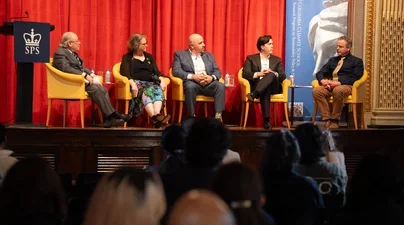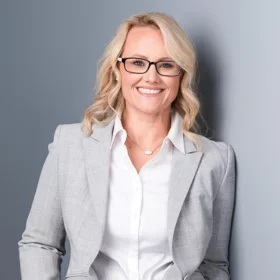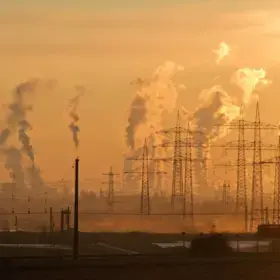“Waste in all its forms is one of the most immediate and tangible challenges facing cities today,” said Alexis Abramson, dean of the Columbia Climate School, as she opened the “Transforming Urban Waste: Policy, Innovation, and the Path to Sustainability” panel on the future of waste management.
Organized by the Research Program on Sustainability Policy and Management, along with Columbia’s M.S. in Sustainability Management, M.S. in Sustainability Science, and M.P.A. in Environmental Science and Policy programs, the panel brought together a range of voices addressing the future of waste through policy reform, innovation, and cultural change.
Steve Cohen, director of the Research Program on Sustainability Policy and Management at Columbia’s Climate School and the Sustainability Management program at Columbia SPS, moderated the event. Cohen, who has spent decades in environmental policy and education, urged a pivot toward technology-led solutions. “Instead of mining the planet for resources,” he said, “we will mine our garbage.” Cohen also noted the need for increasing community buy-in: “What’s missing is a large-scale effort to persuade New Yorkers to participate. We need some kind of carrot to balance the enforcement stick.”
The event’s panelists included notable New York City leaders in the waste management and climate fields. With 23 years in city sanitation, Edward Grayson, the 44th commissioner of the New York City Department of Sanitation, emphasized that tackling the challenge of urban waste management by enacting new policies requires widespread public engagement.

(l to r): Moderator Steve Cohen with “Transforming Urban Waste” panelists Samantha MacBride, Edward Grayson, Jamie Lowrey, and Christoph Meinrenken.
“People need to really understand why we need to do this,” Grayson said. Samantha MacBride, adjunct associate professor at the Marxe School of Public and International Affairs at Baruch College (CUNY), echoed this sentiment, noting that “people are highly motivated by something coming back to their neighborhood.”
Jamie Lowrey, director of Strategic Operations at Circular Services, highlighted that the way facilities track what comes in and goes out still relies heavily on manual sampling. “To me, we live in 2025, and yet somehow it’s like me and someone else and a scale figuring out what’s in this material.” He stressed the need for real-time, automated data systems that can help operators and policymakers make more informed, timely decisions. “Underpinning all of this conversation is good data,” he added.
Christoph Meinrenken, director of the M.S. in Information & Knowledge Strategy (IKNS) and principal investigator in the Research Program on Sustainability Policy and Management at the Climate School, encouraged a broader cultural and economic shift in how society views waste. “What I would like to see is a change in how we understand the connotation of the word ‘waste,’” said Meinrenken.
As cities like New York face mounting pressure to meet climate goals, reduce environmental harms, and improve public services, waste is no longer a peripheral issue: It is central.
Watch the full conversation here:
About the Programs
Sustainability Management
The Columbia University M.S. in Sustainability Management program, offered by the School of Professional Studies in partnership with the Climate School, provides students with cutting-edge policy and management tools to help public and private organizations and governments address environmental impacts and risks, pollution control, and remediation to achieve sustainability. The program is customized for working professionals and is offered as a full-time and part-time course of study.
The program fosters creativity and adaptability by equipping students with the skills to tackle real-world sustainability challenges through an interdisciplinary approach from the world’s premier sustainability academics, researchers, and practitioners. The up-to-the-minute curriculum and flexibility prepare graduates for careers in the dynamic and rapidly changing field of sustainability.
Learn more about the program here.
Sustainability Science
The Columbia University M.S. in Sustainability Science program, offered by the School of Professional Studies in partnership with the Climate School, prepares students for management and leadership positions in which they help organizations address environmental impacts. Students learn strategies to respond to the ever-changing environment and predict future environmental changes—and the impact on corporations, not-for-profits, and the public.
Designed by Research Faculty at the Lamont-Doherty Earth Observatory in collaboration with Columbia’s Earth Institute, the program develops a new generation of scientific leaders through a cutting-edge curriculum led by the world’s top sustainability scientists, the majority of whom are Lamont Research Professors. Graduates are well prepared for management and leadership positions, armed with the scientific expertise to drive meaningful environmental change and lead organizations in a rapidly evolving sustainability landscape. With the flexibility to choose from a variety of courses, students can tailor their education to career goals, while New York City serves as a living laboratory for sustainability innovations and connects them with employers actively seeking program graduates.
Learn more about the program here.



